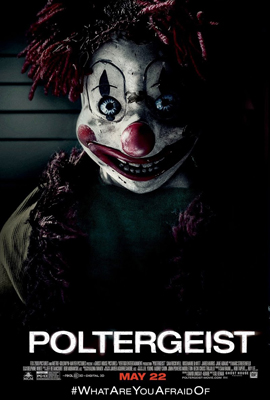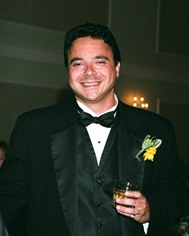 Concerning remakes, director John Huston once remarked, “They should only remake bad movies.” I’m sort of in the middle myself: if you’re going to remake a movie, at least add something new and let the remake be a reimagining. If you’re really interested in seeing a movie, its first imagining is usually best and you can’t mess with an original that was good enough to draw attention to itself by making people want to capitalize on its success by staging a remake.
Concerning remakes, director John Huston once remarked, “They should only remake bad movies.” I’m sort of in the middle myself: if you’re going to remake a movie, at least add something new and let the remake be a reimagining. If you’re really interested in seeing a movie, its first imagining is usually best and you can’t mess with an original that was good enough to draw attention to itself by making people want to capitalize on its success by staging a remake.
In short, the cardinal sin for people making a remake is not adding anything new. Such is the case with this year’s “Poltergeist,” the remake of Tobe Hooper’s 1982 film that commits this cardinal sin- while keeping the story intact, it misses the mark by thinking its story is enough. Adding nothing to the special effects of the original (save for an interesting look at the otherworldly dimension the youngest daughter of a suburban family is sucked into via a portal in her bedroom closet), it pares down what made the original “Poltergeist” compelling by not drawing out the characters in the family enough to allow you to care and not creating special effects that ‘wow’ you more than the effects in the original did.
As with the original, the remake of “Poltergeist” is the story of a suburban family of five who, after moving into a new home within a development, find weird happenings emerge. As their youngest daughter begins to speak to some unknown entity within her bedroom closet and den’s television set, marks of telekinesis surrounding balls and toys that move on their own as well as dining utensils that appear inexplicably bent begin to become visible. It’s only when the parents are out for the evening that the full force of these supernatural happenings come into play: the oldest daughter is trapped in the garage by bodies emerging from the ground as their son is captured by the tree outside his bedroom window that reaches its branch into the home and serpentinely snatches his body within its grotesque grasp. With her siblings subdued, the youngest daughter is taken by supernatural forces into their dimension and it is up to the family to seek the help of parapsychology experts (namely, a college professor and a haunted house cleanser) to get her back safely before she is lost to the other side forever.
Special effects notwithstanding, the beauty of the original “Poltergeist” was the influence of executive producer Steven Spielberg who, having depicted suburban family life in “E.T” around the same time, added a Twilight Zone twist on this portrayal of suburbia by adding the devilish detail of assailing its family with formidable supernatural forces seeking to tear the family apart. What made you care about their plight was the small, subtle details in their characters’ interactions with one other that are given shorter shrift in this remake.
Also notably missing from the remake is the treatment of the person summoned to cleanse the house: in the original, it was Tangina (Zelda Rubinstein), a diminutive demon-hunter psychic who seemed a scarily-odd, worthy combatant to the dark forces laying claim to the dwelling. The remake features a TV-tabloid ghost hunter named Carrigan Burke (Jared Harris) who appears as a weird hybrid of Father Merrin from “The Exorcist” and Captain Quint from “Jaws”- while his appearance is clearly Merrin, the scars he displays and stories he tells of past encounters with savage spirits are cut straight from the cloth of Quint’s U.S.S. Indianapolis scene in “Jaws.” Given the challenge of creating a character as eccentrically interesting as Tangina to cleanse the house, the remake’s characterization of Burke shows this insurmountable challenge by concocting a role drenched in evident classic horror movie-induced familiar flatness.
That’s just it- the remake of “Poltergeist” is flat. With the talent of dependable acting leads in Sam Rockwell and Rosemarie DeWitt and executive producer Sam Raimi (so good with fun horror special effects, most notably in his Evil Dead films), we’re given a standard remake that adds nothing to the original’s charm. Maybe the real devil is in the details: while 1982’s “Poltergeist” runs 114 minutes, this remake clocks in at 93 minutes- those missing 21 minutes of extra exposition seem to make a difference.
Instead of ‘muahaha,’ the remake of “Poltergeist” is merely ‘meh.’ For a movie that should spook your socks off, the status quo treatment of its powerful predecessor may really be this remake’s ultimate cardinal sin.
